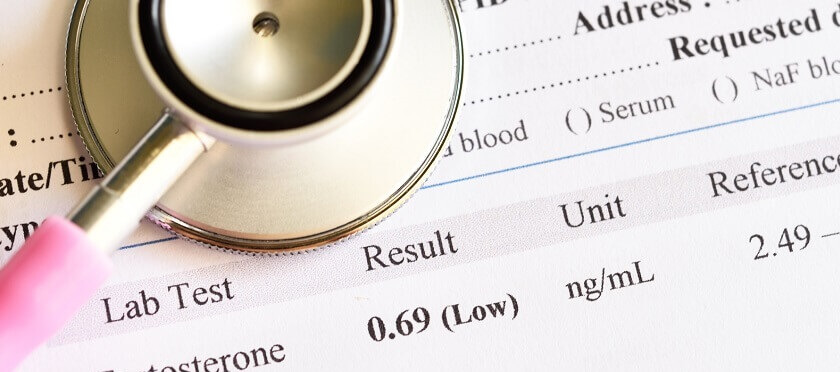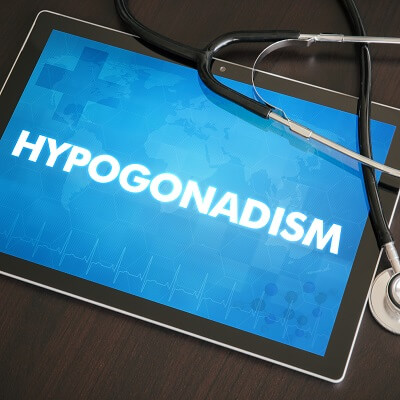Can Testosterone Deficiency Lead to Disease?
Testosterone deficiency can put you at greater risk of certain diseases and medical conditions. Low testosterone has many consequences to a person’s overall physical and emotional health. Here is a list of how having low testosterone can negatively impact your health and well-being:
- Lack of energy
- Sexual health issues
- Weight gain
- Inability to build lean muscle
- Poor results from exercise programs
- Increase in body fat
- Lack of focus, memory issues, and poor work performance
Low testosterone is known to increase your risk of becoming obese and developing diabetes, heart disease, and several other serious diseases and conditions.
What Diseases and Conditions Can Be Caused by Low Testosterone?
A testosterone deficiency occurs when the body does not produce enough testosterone. This condition is known medically as hypogonadism. Low testosterone levels are commonly referred to as “low testosterone” Low testosterone can be caused by a number of diseases and genetic defects. However, the most prevalent cause is the natural decline in testosterone as men age. The peak of a man’s testosterone level occurs around age 20. Following that, it begins a gradual decline. The majority of men between the ages of 45 and 65 suffer from testosterone deficiency.
Even if you do not experience the negative symptoms of low T, there is a link between testosterone deficiency and an increased risk of a number of serious diseases. The following diseases can be brought on by low testosterone levels:
- Increased risk of cardiovascular disease.
- Increased risk of death from a cardiovascular event.
- Increased risk of metabolic syndrome: high blood pressure, elevated insulin levels, excess belly fat, and abnormal cholesterol levels.
- Increased risk of clinical depression.
- Strong association with diabetes.
- Strong association with high cholesterol and atherosclerosis (hardening of the arteries).
- Higher incidence of prostate cancer.
- Association with more aggressive variants of cancer.
- Increased risk of autoimmune diseases, such as rheumatic autoimmune diseases, rheumatoid arthritis, and lupus.
Treating a Testosterone Deficiency Can Lower Your Risk of Disease
With proper treatment, you can reduce your risk of developing these diseases and reverse or reduce the symptoms of low testosterone. Replacement therapy is the safest and most effective treatment for testosterone deficiency syndrome.
At National HRT, our physicians consult with each patient to develop a plan for testosterone replacement therapy that is tailored to their specific requirements. We offer brand-name medications from licensed and regulated pharmacies in the United States, ensuring their quality and safety.
Testosterone therapy can be administered in a variety of ways, but our physicians have determined that testosterone injections are the most effective and safest form of testosterone replacement. At our testosterone clinic, getting testosterone injections prescribe is a simple five-step process:
- Step 1 – Fill out an online medical history form – This step is the only one in the process that can be done online.
- Step 2 – Consult with our doctors – If your online medical history form indicates that you are a good candidate for testosterone injections, the next step is to consult with our doctors. They will discuss your medical history in further detail, ask you more about your symptoms, and take a complete physical exam.
- Step 3 – Laboratory hormone testing – Once you have completed your physical exam, you will be referred to a laboratory to have the hormone levels in your blood tested.
- Step 4: Your customized testosterone replacement therapy program is prescribed– After analyzing the results of your lab tests and discussing your symptoms and lifestyle with you, our doctors will design a customized testosterone replacement therapy program specifically tailored to your needs. The program will outline the dosage, administration methods, and duration of your testosterone therapy, and our doctors will explain the potential benefits, risks, and side effects of the treatment. They will also answer any questions you may have to ensure you fully understand the process.
- Step 5: Your testosterone therapy is delivered to your door – Once your treatment program has been prescribed, our doctors will forward your prescription to one of the licensed and regulated pharmacies we work with. The pharmacy will then deliver your testosterone therapy supplies right to your door.
We only work with reputable pharmacies that offer high-quality, FDA-approved medications. We believe that providing our clients with safe, effective, and convenient access to testosterone replacement therapy is key to helping them achieve their health and wellness goals.
In conclusion, if you are experiencing symptoms of low testosterone, don’t suffer in silence. Contact National HRT today to schedule a free consultation with one of our experienced medical advisors. We offer safe, convenient, and affordable testosterone replacement therapy solutions that can help you restore your vitality, energy, and overall health.
Please note that the information provided in this post is for informational purposes only and should not be used as a substitute for professional medical advice, diagnosis, or treatment. If you have any concerns about your health or are considering starting testosterone therapy, please consult with our doctors or another qualified healthcare provider before beginning any treatment.
SOURCES
- The Journal of Clinical Endocrinology & Metabolism: Testosterone Therapy and Cardiovascular Risk: Advances and Controversies https://academic.oup.com/jcem/article/102/2/407/2819372
- The Journal of Clinical Endocrinology & Metabolism: Testosterone Replacement Therapy and Mortality in Older Men https://academic.oup.com/jcem/article/101/11/4179/2765037
- The New England Journal of Medicine: Testosterone and the Cardiovascular System https://www.nejm.org/doi/full/10.1056/NEJMra1500891
- The Journal of Clinical Endocrinology & Metabolism: Testosterone Therapy and Diabetes Risk https://academic.oup.com/jcem/article/97/7/2046/2836434
- The Journal of Clinical Endocrinology & Metabolism: Testosterone and Prostate Cancer: An Evidence-Based Review https://academic.oup.com/jcem/article/98/8/3156/2833273





